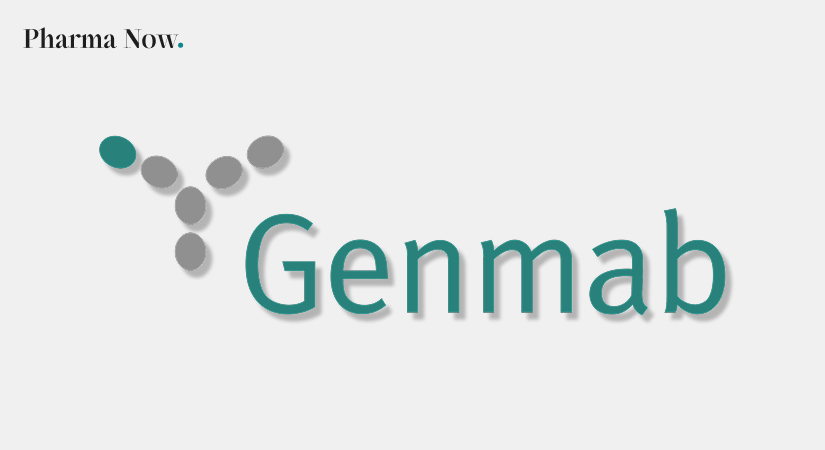Genmab Announces FDA Approval Of EPKINLY® (epcoritamab-bysp) With Rituximab And Lenalidomide For Relapsed Or Refractory Follicular Lymphoma
FDA approves EPKINLY + R2 for relapsed or refractory follicular lymphoma, showing 79% lower progression risk and higher complete response rates.
Breaking News
Nov 19, 2025
Simantini Singh Deo

Genmab A/S announced that the U.S. Food and Drug Administration (FDA) has approved EPKINLY (epcoritamab-bysp) in combination with rituximab and lenalidomide, commonly referred to as EPKINLY + R2, for adult patients with relapsed or refractory follicular lymphoma (FL). This approval is based on the results of the pivotal Phase 3 EPCORE FL-1 study, which compared a fixed duration of EPKINLY + R2 with the standard R2 regimen.
In the study, patients receiving EPKINLY + R2 experienced a significant reduction in the risk of disease progression or death. The combination lowered this risk by 79% compared to R2 alone. Median progression-free survival was not reached for the EPKINLY + R2 group, indicating a strong and sustained benefit, whereas the median progression-free survival for those treated with R2 alone was 11.2 months. The response rates were also higher with the new combination. A total of 89% of patients treated with EPKINLY + R2 responded to therapy, and 74% achieved a complete response. In comparison, patients who received R2 alone had a 74% overall response rate and a 43% complete response rate. The study included patients with relapsed or recurrent FL who had received at least one previous treatment, covering a wide spectrum of disease characteristics.
The safety profile of EPKINLY + R2 in this study was consistent with what has already been observed for the individual treatments. Common side effects included rash, upper respiratory infections, fatigue, injection site reactions, constipation, diarrhea, pneumonia, fever, COVID-19, and cytokine release syndrome (CRS). Laboratory abnormalities such as reduced neutrophils, lymphocytes, and platelets were also noted. CRS was reported in 24% of patients and was mostly mild to moderate. Only one patient experienced a mild case of immune effector cell-associated neurotoxicity syndrome. The prescribing information contains a boxed warning for the risks of CRS and ICANS, as well as additional warnings related to infections, cytopenias, and potential harm to unborn babies.
Medical experts highlighted the importance of this approval. According to Dr. Lorenzo Falchi, a lymphoma specialist at Memorial Sloan Kettering Cancer Center, recurrent follicular lymphoma remains difficult to treat and often returns despite existing therapies. He noted that the strong and durable responses observed with EPKINLY + R2, delivered in a chemotherapy-free regimen that can be administered in outpatient settings, suggest that this combination could become an important new treatment option.
Follicular lymphoma is a slow-growing form of non-Hodgkin lymphoma and affects around 15,000 new patients each year in the United States. While treatments are available, the disease is considered incurable, and many patients experience relapse. In some cases, it may transform into a more aggressive lymphoma, such as diffuse large B-cell lymphoma.
The approval also marks progress in expanding access to advanced lymphoma treatments. Meghan Gutierrez, CEO of the Lymphoma Research Foundation, stated that having a bispecific-based therapy administered in various healthcare settings gives patients more flexibility and the possibility of receiving treatment closer to home.
EPKINLY + R2 had previously received Breakthrough Therapy Designation from the FDA based on early clinical evidence showing substantial improvement over existing therapies. Genmab highlighted that the approval allows physicians to use this therapy earlier in the treatment timeline, at the first recurrence of the disease. Dr. Judith Klimovsky, Executive Vice President and Chief Development Officer at Genmab, said this milestone reinforces EPKINLY’s potential as a foundational therapy for B-cell cancers, both as a standalone treatment and in combination with other medicines.
EPKINLY monotherapy was granted accelerated approval in June 2024 for patients with FL who had previously received two or more treatments. With the positive results of the Phase 3 EPCORE FL-1 study, this accelerated approval has now been converted to a full approval. The complete data from the Phase 3 EPCORE FL-1 study will be presented at the American Society of Hematology Annual Meeting in December.
